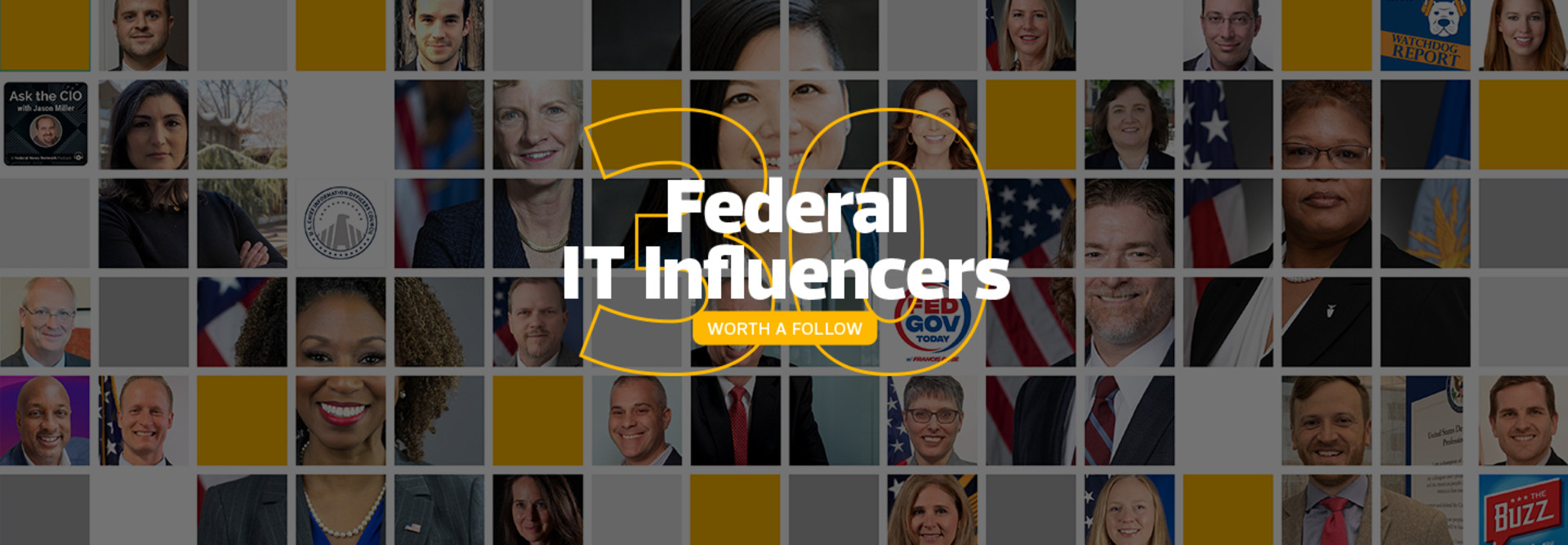30 Federal IT Influencers Worth a Follow in 2023
With a zero-trust deadline looming for civilian agencies, the increasing use of artificial intelligence and continuing threats from both nation-state and independent rogue actors, today’s federal IT influencers have a lot on their plates.
2024 adds another level of complexity as the presidential primary season nears. Facts often became victims of misinformation in 2020, and with four years of practice under their belts (and a changing social media landscape), those who want to use cyberspace as a weapon can wield it more effectively.
On another front, federal agencies are working hard to meet the September 2024 deadline to have a plan in place for a zero-trust environment, and are looking for ways to increase cybersecurity and IT hiring.
Our 2023 influencers — listed in alphabetical order by first name — have been at the forefront of all these activities. Just as they steer their agencies, customers and partners through the ever-changing world of government IT, we hope they’ll be your guides as well.
And if you’re on the list, let everyone know; grab our IT influencer cover image for your social media pages and websites.
Click the banner below to discover digital workspace solutions for your organization.

CIOs from agencies large and small talk to Federal News Network about their adventures and successes in IT. Listen for tips on topics such as zero trust, acquisition, cyber hiring and artificial intelligence.
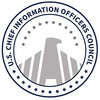
Led by Federal CIO Clare Martorana and Federal CISO Chris DeRusha, the CIO Council is where the federal government’s top IT executives meet to discuss policy and practice, and set IT standards for agencies to follow.

Named to the World Economic Forum’s Agile 50 List for his accomplishments in digital innovation, Combiz Richard Abdolrahimi has served in three presidential administrations, advising leaders on inclusive uses for new and emerging technologies. He is currently the global emerging technology leader at Deloitte.

Recently appointed to the position of vice president for worldwide public sector at Amazon Web Services, Dave Levy previously worked as vice president for AWS’s government, nonprofit and global healthcare businesses. His focus is on how agencies can leverage the cloud for machine learning and artificial intelligence uses.

As CEO of the American Council for Technology-Industry Advisory Council, Dave Wennergren shepherds a public-private partnership whose white papers form an intellectual foundation for federal policymakers. Its annual Imagine Nation conference attracts more than 1,000 federal and private sector technology experts.
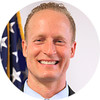
If our math is correct, David Shive is not only the longest-serving current CIO in federal government, but the longest-serving of all, with more than 11 years on the job. The General Services Administration CIO is well respected by his peers for his expertise; he also serves as vice chair of the CIO Council.

Elham Tabassi is a senior research scientist at the National Institute of Standards and Technology who serves as associate director for emerging technologies in NIST’s Information Technology Laboratory. In addition, she runs NIST’s Trustworthy and Responsible AI program, which works to increase trustworthy design, development and use of artificial intelligence. She was also included among the TIME100 Most Influential People in AI.

With a focus on digital transformation in government, Eric Egan is a policy fellow for digital government at the Information Technology and Innovation Foundation. He writes on topics such as how to improve government websites, how AI can simplify the job for federal employees and why telework is a necessary part of the government’s future.

Longtime federal IT journalist Francis Rose hosts this twice-weekly podcast (and weekly TV show) that delivers the information federal employees at all levels need to fulfill their missions. Topics include artificial intelligence, acquisition, modernization and telework.

Recently detailed to the National Security Council as director for technology and national security, Garrett Berntsen was the State Department’s deputy chief data officer. His team is implementing State’s first enterprise data strategy.
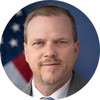
Gerald Caron, CIO for the International Trade Administration, has spent his career working with IT teams to improve solutions and cybersecurity. He’s the government co-chair of the Advanced Technology Academic Research Center’s Zero Trust Working Group and a member of the center’s Government Advisory Board.

The award-winning CIO of the Office of Personnel Management (OPM), Guy Cavallo has worked in government IT since 2015, including positions at the Transportation Security Agency and the Small Business Administration, where he was deputy CIO. OPM is currently working to move its well-used website to the cloud, where it can become more customer friendly.

Jen Easterly, the colorful director of the Cybersecurity Infrastructure and Security Agency, continues to lead the nation in the direction of a safer online environment. The agency offers ever more tools for individual citizens, governmental bodies and businesses to protect themselves from cyberattack, and is beginning to turn its focus to the security of the 2024 elections.

Jonathan Alboum is the federal CTO and principal data strategist at ServiceNow and a past CIO at the U.S. Department of Agriculture. In his ServiceNow role, Alboum assists federal agencies and finds ways to use and analyze data in order to meet their goals more effectively and efficiently.

Under the leadership of Katy Mann, Okta’s senior vice president for the public sector, the company has introduced Okta for U.S. Military, designed for use by the Department of Defense and its partners. Okta continues to support identity authorization for government, with about 400 million authentications across the public sector last year.

State Department CIO Kelly Fletcher moved to her new position from the Department of Defense, where she was the principal deputy CIO. At State, she’s spearheading the “Tech for Life” project, which will enable the agency’s well-traveled employees to keep the same devices whenever they change duty stations — a massive convenience for both workers and IT staff.
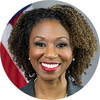
Acting National Cyber Director Kemba Walden is responsible for numerous major cyber initiatives coming from the White House this year. She oversees the implementation of its national cyber strategy and led development of the first National Cyber Workforce and Education Strategy, released in July.
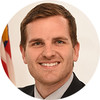
The Advanced Research Projects Agency for Health is a new Health and Human Services operating division, modeled on its Defense Department counterpart, that supports HHS’s efforts to improve its technology and data infrastructure. As acting CIO, Kevin Duvall leads the DARPA-like organization’s efforts to develop “high-potential, high-impact” health solutions.

From post-quantum cryptography to artificial intelligence and zero trust, the informative General Services Administration blog led by Laura Stanton — the assistant commissioner in GSA’s Federal Acquisition Services’ Office of Information Technology Category — covers all the federal IT bases.

Principal Deputy CIO Leslie Beavers is part of the DOD team that advises the secretary of defense on IT matters ranging from satellite communications to information management, and coordinates IT and cybersecurity efforts across the military branches.
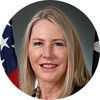
Returning to FedTech’s IT Influencer list for a second year, Space Force Chief Technology and Innovation Officer Lisa Costa is responsible for IT decisions for the nation’s newest military branch. Space Force is working to upgrade its infrastructure to handle advanced tools such as artificial intelligence.

Lynne Parker is the founding director of the National Artificial Intelligence Initiative Office, which provides the White House AI committees with technical and administrative support. As part of this organization and several other AI-related programs across government, Parker is among the leaders who have developed national policies on the technology. She’s now director of the AI Tennessee Initiative at the University of Tennessee, Knoxville.

Until October, Raylene Yung was the executive director of the influential Technology Modernization Fund, which manages more than $1 billion available to pay for agency IT upgrades that have had trouble getting funding. Nearly 30 agencies are working on about 50 projects covered by the TMF.
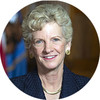
Robin Carnahan is administrator of the General Services Administration, an agency with the wide-ranging mission of managing federal real estate, organizing government acquisition of materials and solutions, and running technology-related programs such as FedRAMP.
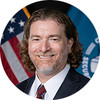
Federal agencies are familiar with Sean Connelly’s work; he was instrumental in the development of all versions the Trusted Internet Connections initiative and currently manages TIC at the Cybersecurity and Infrastructure Security Agency. He was also part of the team that designed the Continuous Diagnostics and Mitigation Program.

Microsoft Federal Security CTO Steve Faehl focuses on strategies to prevent and disrupt cyberthreats and leads the company’s federal cybersecurity programs. He is currently working on zero-trust initiatives, critical infrastructure and issues connected with the Biden administration’s executive order on improving the nation’s cybersecurity.

Let The Buzz define itself: “Your source for the hot topics and top issues affecting the federal technology market.” This weekly podcast also offers the occasional history lesson on important legislation and brings out vintage episodes for new listeners to learn from.
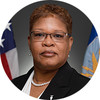
Former Air Force CISO Wanda Jones-Heath is now the principal cyber adviser for the Department of the Air Force, which encompasses both the Air Force and Space Force. She’s in charge of implementing the department’s cyber strategy as well as cyberspace-related recruitment, supply chain risk management and information security.

Watchdog Report, the Government Accountability Office podcast that gives insight into the agency's oversight reports, provides details on GAO’s IT-related investigations for people who prefer to get their information via audio.

Wendi Whitmore works as senior vice president of Palo Alto Networks Unit 42, the company's threat assessment arm. She’s also a member of the Cybersecurity and Infrastructure Security Agency’s Cyber Safety Review Board, which was formed after the Log4j vulnerability was discovered; the board’s mission is to improve the nation’s cybersecurity posture.



